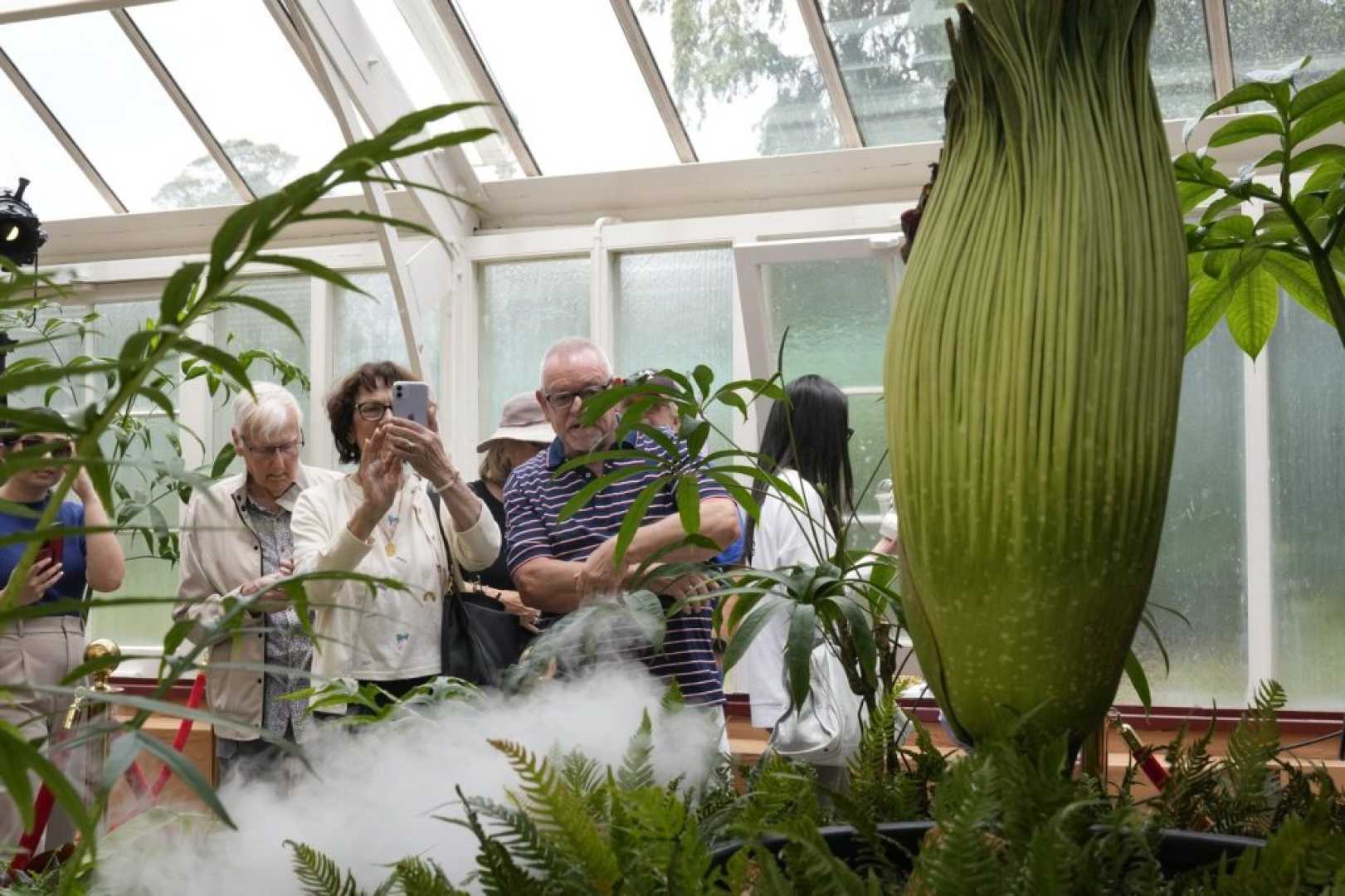News
Sydney’s ‘Corpse Flower’ Draws Crowds with Rotting Flesh Scent

SYDNEY, Australia — The stench of rotting flesh would typically repel visitors, but this week, it drew thousands to Sydney‘s Royal Botanic Garden. The rare blooming of the Amorphophallus titanum, commonly known as the “corpse flower,” captivated crowds eager to witness its 24-hour spectacle and inhale its infamous odor.
Nicknamed “Putricia” by fans, the flower bloomed for the first time in 15 years at the garden. The event attracted up to 20,000 visitors, who lined up to catch a glimpse of the tropical plant, native to the rainforests of western Sumatra. The flower’s pungent aroma, often compared to wet socks and hot cat food, added to its allure.
On Thursday at 3:30 p.m. local time, garden staff carefully encouraged Putricia’s petals to unfurl as onlookers snapped photos and videos. The flower’s fleeting bloom, lasting just one day, created a sense of urgency among visitors. “It’s a once-in-a-lifetime experience,” said one attendee, who traveled across the city to see the spectacle.
Putricia’s fame extended beyond the garden, with a 24/7 livestream garnering nearly a million views in less than a week. Social media buzzed with excitement, as fans dubbed themselves “Putricians” and shared their experiences online. The Royal Botanic Garden’s livestream allowed global audiences to witness the rare event without enduring the flower’s overpowering scent.
The corpse flower’s bloom is a rare phenomenon, occurring only once every few years. Its odor, designed to attract pollinators like carrion beetles and flesh flies, is a survival mechanism. Despite its unpleasant smell, the flower’s unique biology and scarcity have made it a botanical celebrity.
As Putricia’s bloom faded by Friday, visitors and online fans alike reflected on the fleeting nature of the event. “It’s amazing how something so smelly can bring so many people together,” said another attendee. The Royal Botanic Garden has not announced when the next corpse flower might bloom, leaving fans to wonder when they might encounter such a spectacle again.












